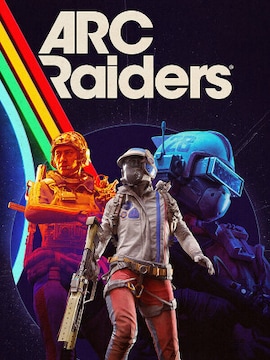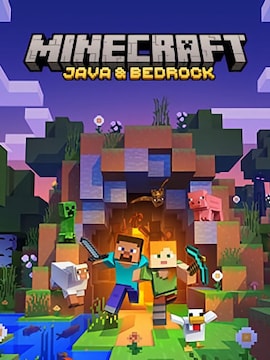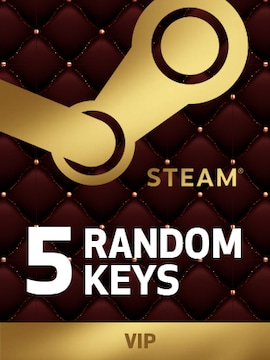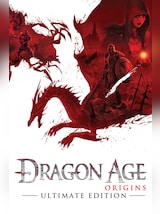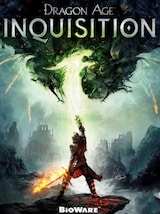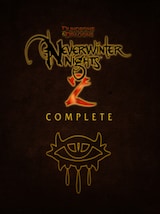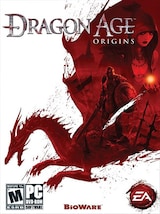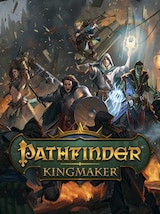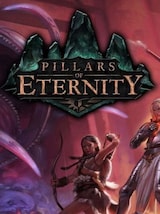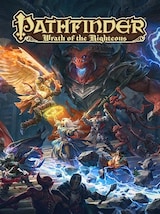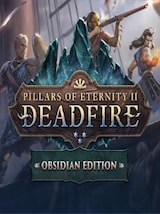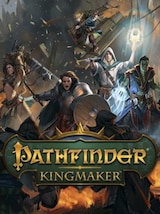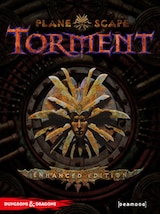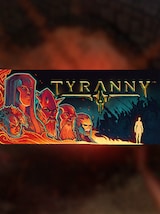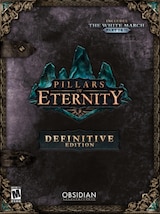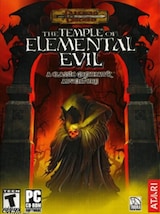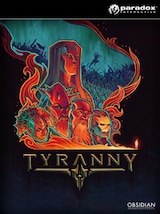There’s no denying that the Baldur’s Gate games have changed the landscape of video game RPG forever. They were, by all means, revolutionary and are fondly remembered decades later. Over the years they spawned a few games inspired to follow in their footsteps in one way or another.
Some of them simply go for a Real Time with Pause combat system popularised by the Infinity Engine games, others also add memorable companions and big adventuring parties. Many have sweeping, epic storylines putting your character (or characters) on a path to glory and heroism. A few also use 2D map viewed through an isometric camera. Some of the classics, originally launched for PC, have been ported over to consoles, broadening their appeal, such as Planescape: Torment or Icewind Dale (sadly, only the first one).
Beneath you’ll find a list of a few RPGs like Baldur’s Gate, some of them quite modern, some of them from the mid-2000s, all of them worth checking out and playing through.
Dragon Age: Origins
| Release date: | 2010-09-29 |
| Genre: | RPG |
| Developer: | BioWare |
Dragon Age: Origins in many ways was BioWare’s attempt to return to more classic fantasy after Jade Empire, and Knight of the Old Republic, and especially after science fiction world of Mass Effect. It was a very good attempt, too: for many people Origins remains the best Dragon Age game, and has fully earned its place as one of the best modern role-playing games.
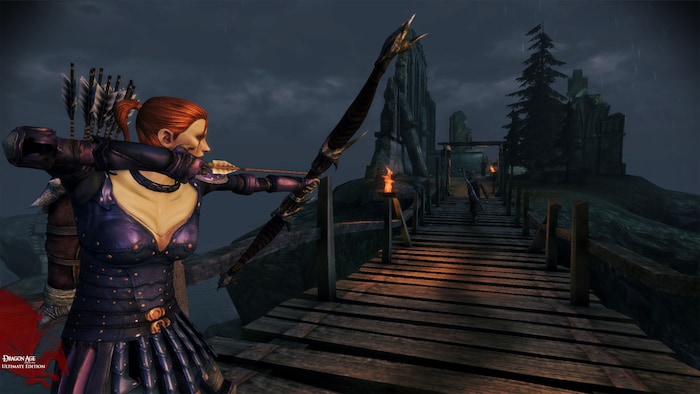
DAO was a pretty dark, brutal game depicting an equally dark and brutal setting. Each of the Origins you can play through features backstabbing, cruelty, and loss, and it’s just a taste of what’s coming in the main story. You’ll be forced to make hard choices which will define who will come to your aid in your fight against the draconic Archdemon and its Darkspawn hordes.
| Key features |
|---|
|
Dragon Age: Inquisition
| Release date: | 2014-11-18 |
| Genre: | Adventure |
| Developer: | BioWare |
Although aesthetically and thematically different from Origins, Dragon Age: Inquisition, the third game in the series, had an even grander scale and a new batch of hard decisions. It also gave you control over a powerful organisation, coming complete with advisors, lieutenants, agents and army. All of them will see action, because not all problems can be solved by a four-person party of heroes.
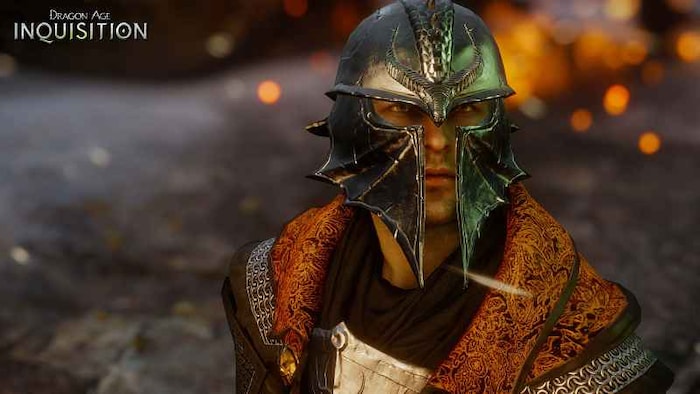
The story involves a tear between the physical realm and the Fade, a realm of thought, magic, and spirits, many of which manifest as demons. On top of that an ancient, powerful mage seeks to use the tear for his own purposes. Dragon Age: Inquisition on first glance isn’t dark in the same way Origins was, but it’s still an epic fantasy adventure worth going on.
| Key features |
|---|
|
Neverwinter Nights 2
| Release date: | 2006-10-31 |
| Genre: | Adventure |
| Developer: | Obsidian Entertainment |
BioWare’s Neverwinter Nights was a very successful revival of an older license (the Neverwinter Nights MMORPG), and was a substantial shift from 2D to full 3D, but in some ways it was outclassed by the Obsidian– developed sequel, Neverwinter Nights 2. NWN2 had a large party of full companions (as opposed to NWN1 henchmen), and, arguably, a grander scale story than its predecessor.
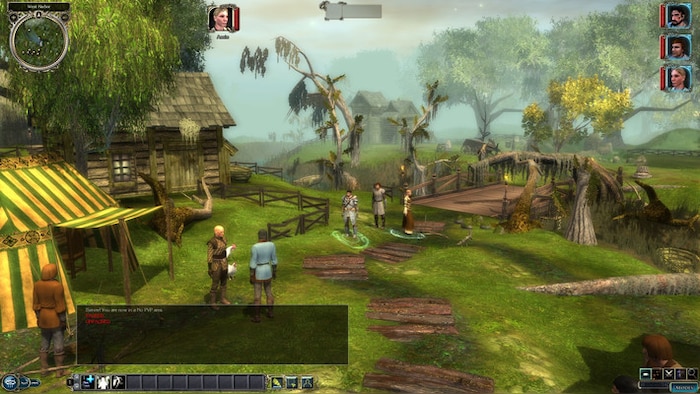
The game involves extraplanar invaders, ancient magic, and a weird connection between your character and the crisis affecting Neverwinter and the nearby section of the Sword Coast. It also gives you a fortress to (mostly unobtrusively) manage, and quite a few choices to make. NWN2 was the last video adaptation of proper D&D until the announcement of Baldur’s Gate 3 development.
| Key features |
|---|
|
Pathfinder: Kingmaker
| Release date: | 2018-09-25 |
| Genre: | RPG |
| Developer: | Owlcat Games |
Pathfinder is a counterpart/spin-off from D&D based on a free version of the 3.5 rules. Kingmaker is one of the more popular campaigns for its first edition, revolving around capturing a territory and running the party’s own barony. Owlcat Games’ Pathfinder: Kingmaker is a video game adaptation of that campaign. And it’s a really good game, too, with many player options.
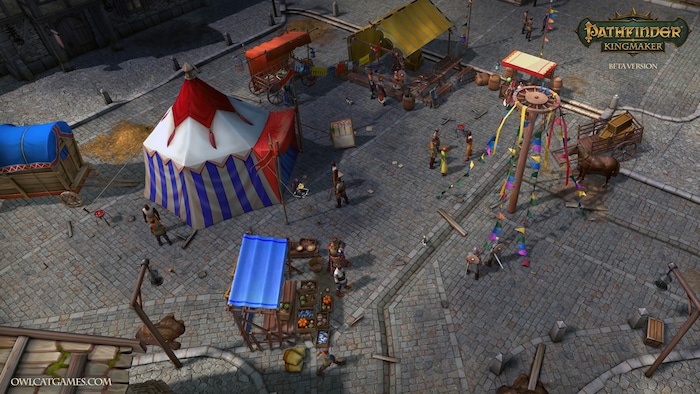
The game plays out on two levels, like DA: Inquisition. On one level you govern your barony, assigning companions to court positions and making edits. On the second level you go on adventures in a party of up to six characters (including your own), and engage in typical dungeoneering. PF:K also has an optional turn-based mode, perfect for complicated encounters with powerful enemies.
| Key features |
|---|
|
Pathfinder: Wrath of the Righteous
| Release date: | 2021-09-02 |
| Genre: | RPG |
| Developer: | Owlcat Games |
Although it’s still to be released, Wrath of the Righteous appears intent to be the Baldur’s Gate 2 to Kingmaker’s Baldur’s Gate1. Bigger, bolder, with more options, and an even grander story based on another tabletop campaign. The game’s has been funded on Kickstarter, with most stretch goals funded, which mean a a lot of new classes, archetypes, and a few new ancestries.
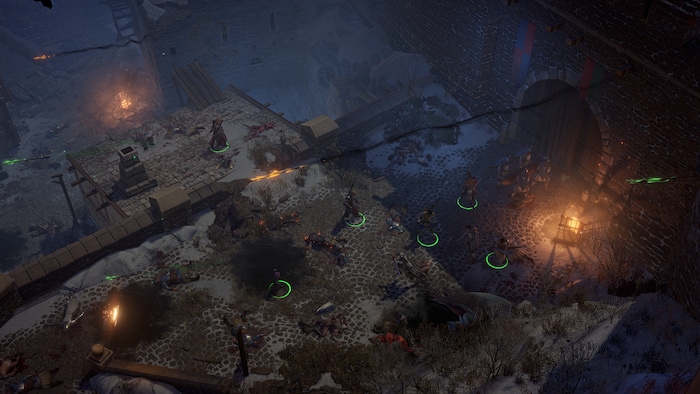
The story is going to involve an invasion of demonic forces, and a a crusader who discovered an interesting and unexpected well of power withing themselves. Becoming a Baron is being revamped into becoming a commander of the crusade meant to push back against demons. Your choices will also put you on a Mythic Path towards becoming one of several possible otherworldly, powerful entities.
| Key features |
|---|
|
Pillars of Eternity
| Release date: | 2015-03-26 |
| Genre: | RPG |
| Developer: | Obsidian Entertainment |
Hailing back to the legacy of Infinity Engine games was one of the main draws of Pillars of Eternity Kickstarter campaign, and it paid off wonderfully. Although it takes clear inspirations from Dungeons & Dragons it’s set in a fully original world with detailed history, and features a system designed specifically for a video game format, instead of adapting a tabletop ruleset like the IE games.
The story follows a newcomer in the region called Dyrwood, a person who will become known as the Watcher of Caed Nua. The region is tormented by a bizarre ailment: many children are born without souls. As someone who can actually see souls, as well peoples’ past lives, you are uniquely equipped to do something about this, and also to uncover millennia old secrets.
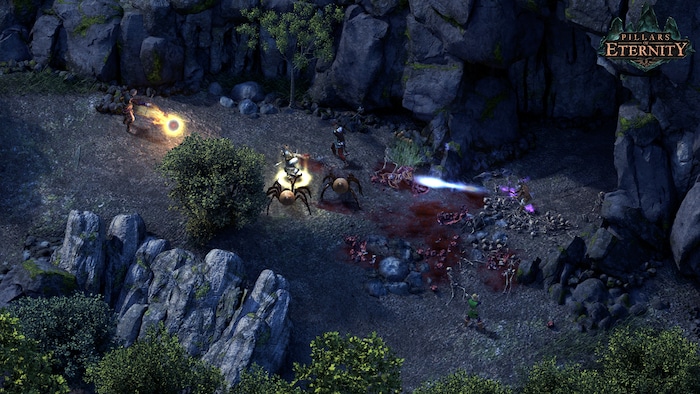
The story follows a newcomer in the region called Dyrwood, a person who will become known as the Watcher of Caed Nua. The region is tormented by a bizarre ailment: many children are born without souls. As someone who can actually see souls, as well peoples’ past lives, you are uniquely equipped to do something about this, and also to uncover millennia old secrets.
| Key features |
|---|
|
Pillars of Eternity 2: Deadfire
| Release date: | 2018-05-08 |
| Genre: | RPG |
| Developer: | Obsidian Entertainment |
PoE2: Deadfire substantially changed the tone and the theme of the series, even as it followed up on some threads from the original game. While PoE1 was set in a more or less traditional late Medieval/early Renaissance place, the sequel took a nautical turn: there are pirates, unscrupulous trading companies, and graceful ships trading cannonballs. And a colossal rampaging god.
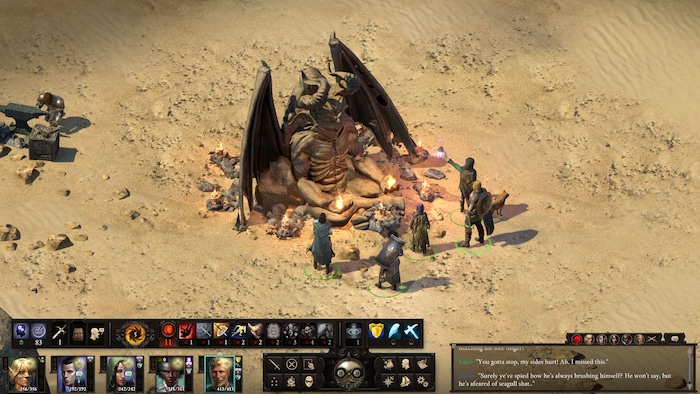
The story picks up a few years after the first game left off, and is set on a beautiful, sun-lit Deadfire archipelago which has become a target for trading companies because of its supply of luminous adra, a resource valuable for many reasons, mundane and magical. The rampaging god is Eothas, reborn into a giant statue you know from the first game. He has mysterious goals and a piece of your soul.
| Key features |
|---|
|
Planescape: Torment
| Release date: | 2017-04-11 |
| Genre: | Strategy |
| Developer: | Beamdog |
Planescape: Torment is Baldur’s Gate’s serious and philosophical younger brother, and in the years since its release it’s come to enjoy a reputation as one of the greatest RPGs ever made. The balance between combat and dialogue is skewed heavily towards dialogues, so much so that it’s possible to complete the game with barely any fighting, and even the final boss can be talked down.
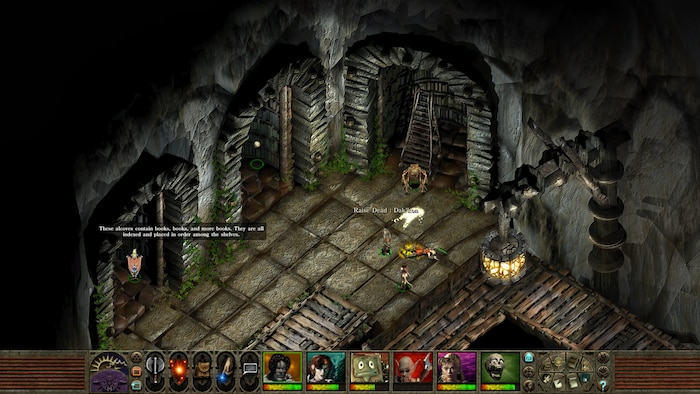
Your main character is only known as The Nameless One, a gruesomely scarred man with uncertain past, a bad case of amnesia, and inability to die permanently. The companions who join you are equally unique: a chaste succubus, a disgraced warrior-philosopher, or a man turned into a living portal to a realm of primal fire. Planescape: Torment is a story not easily forgotten. Thanks to the Enhanced Edition (effectively a remake/remaster) it’s also playable on modern systems.
| Key features |
|---|
|
Temple of Elemental Evil
| Release date: | 2003-09-16 |
| Genre: | RPG |
| Developer: | Troika Games |
The Temple of Elemental Evil is a nexus of Dungeons & Dragons concepts. It’s set in the world of Greyhawk, is inspired by the classic adventure under the same title, and uses the 3.5 version of the ruleset very faithfully. It’s never received the kind of widespread recognition enjoyed by Baldur’s Gate, but it’s a fantastic game with many great ideas and a satisfying combat system.
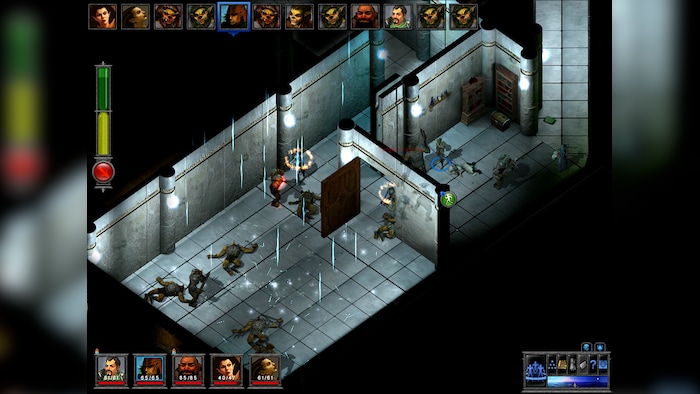
You start the game by building a party of custom characters and a part of this process is picking the party Alignment which determines the first few scenes of the story, but before long you’re free to do as you please, which includes venturing towards the eponymous Temple, which is now crawling with all sorts of cults, demons and monsters. It’s a great party-based RPG, well worth being given a chance.
| Key features |
|---|
|
Tyranny
| Release date: | 2016-11-10 |
| Genre: | Adventure |
| Developer: | Obsidian Entertainment |
While most fantasy RPGs romance with the Medieval themes, Tyranny draws inspiration from ancient civilisations and myths to weave its tale. It also, in a rare and bold choice, puts you on the side of the invading army of the tyrannical overlord Kyros: you are the Fatebinder, an arbiter of law, sent to the region called Tiers to bring order to the place. How you do it is up to you.
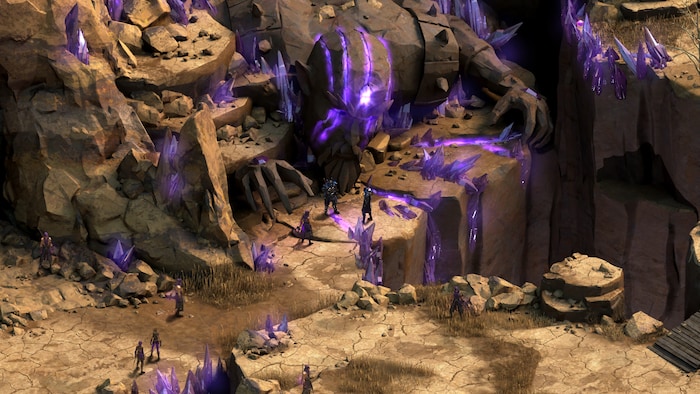
Tyranny isn’t as long as other games on the list, but it more than makes up for it in replayability. There are several paths to the ending, depending on whom you ally yourself with: either of Kyros’ armies, the Rebels, yourself, or even Kyros themselves. Each path reveals a different piece of the full story, but you’re also allowed to betray your alliance at key moments. The choices truly matter.
| Key features |
|---|
|
Go forth, adventure awaits!
That concludes the list, but the small Renaissance of the RPG genre ushered in by games like Pillars of Eternity, Dragonfall Returns, or Divinity Original Sin ensured that we’ll be getting new fantasy RPGs for years to come, and more than a few of them will have some connection to BioWare’s debut role-playing game from 1998.


